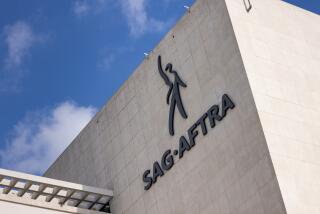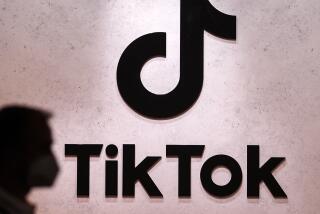Music Industry Wins a Round in Digital Fight : House Panel Votes 1-Year Ban on Recorders Unless They Contain a Chip to Block Copying
- Share via
WASHINGTON — The music industry Wednesday won an early round in its fight to require anti-taping devices on digital audio tape recorders, a new music technology with the ability to reproduce high-quality recordings.
The House Energy and Commerce Committee, as part of its proposed trade legislation, voted 24 to 18 to place a one-year ban on the sale of DAT recorders unless the devices include a computer chip that would block the recording of certain copyrighted music. The recorders, already available in Japan, are expected to be ready for sale in the United States by the end of the year.
Charles Ferris, a former Federal Communications Commission chairman now representing manufacturers and retailers, called the committee vote “really a direct attack on home taping. Some would eventually like to require anti-taping chips on all home taping devices.
“We feel we were convicted and hung without a trial,” Ferris added. “The government shouldn’t ban new technology for reasons other than health and safety.”
The House now must decide if the controversial amendment, pushed by California Rep. Henry Waxman (D-Los Angeles) should stay in the final version of the trade bill.
Differing Views
According to California Rep. Carlos J. Moorhead, (R-Glendale), who voted for the Waxman amendment, “The only purpose of (the DAT recorder) is to copy American records and avoid paying copyright fees, help Japanese industry and take away property rights of American artists.”
But Rep. Al Swift (D-Wash.), said the DAT recorder would “not contribute one whit” to the long-standing music industry problem of home taping. Top-of-the-line cassette taping equipment on the market now already allows anyone to copy recordings “cheaper and faster” than the DAT recorder would, Swift said. The proposed “extraordinary trade restriction” on the DAT recorder would not address the larger copyright questions that the music industry still must settle, Swift said.
Allan Schlosser, an official of the Electronic Industries Assn., which is fighting the one-year ban, said there are now no legal bars to imports of Japanese DAT recorders, which currently retail for about $1,300 each.
Acceptance Factor
But Thomas P. Friel, another EIA official, said that “people will not buy the DAT unless they have a chance to make their own recordings at home, too. Our experience with the VCR proved that . . . consumers will never accept the banning of a new product simply because the recording industry doesn’t want them to have it.”
The Supreme Court ruled in 1984 that videotape recording for personal use does not violate copyright laws. However, the court left open the possibility that Congress could require that recording machines include anti-taping devices to foil reproduction.
Music industry officials say home recording already costs them $1.5 billion a year in potential sales. The one-year ban on the sale of recorders “would give everybody time to figure out how to proceed from here without undercutting the music industry,” Waxman said. If the machines go on sale without the anti-taping devices, he said, “you’re not going to be able to roll them back once they’re here.”
Jason Berman of the Recording Industry Assn. of America called the vote a “great victory for American music. I think people thought it was time to help an important American trade asset--music.” He said it is “conceivable” that the music industry eventually would advocate two versions of recordings, one copiable and the other not, with the copiable one priced higher.
More to Read
The biggest entertainment stories
Get our big stories about Hollywood, film, television, music, arts, culture and more right in your inbox as soon as they publish.
You may occasionally receive promotional content from the Los Angeles Times.










